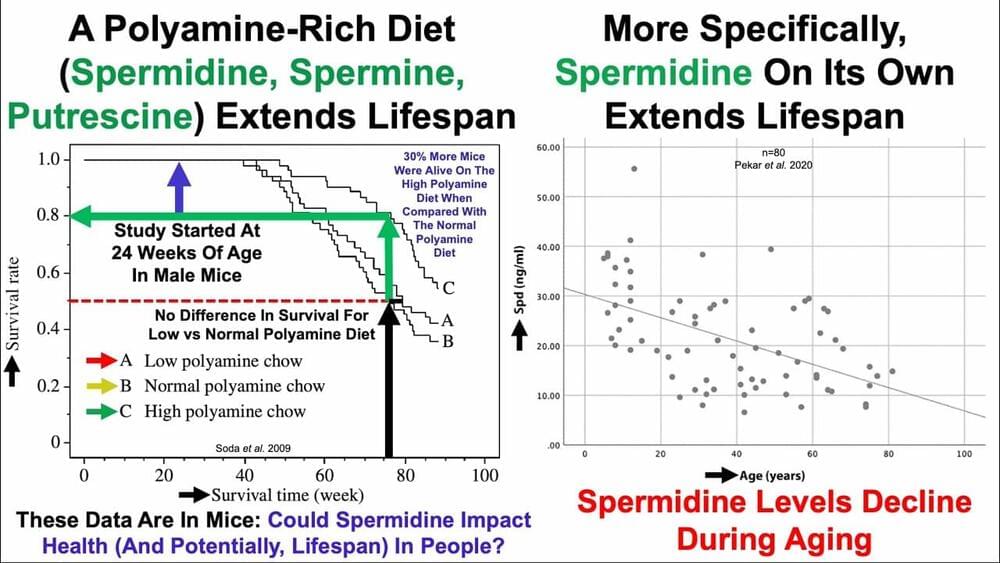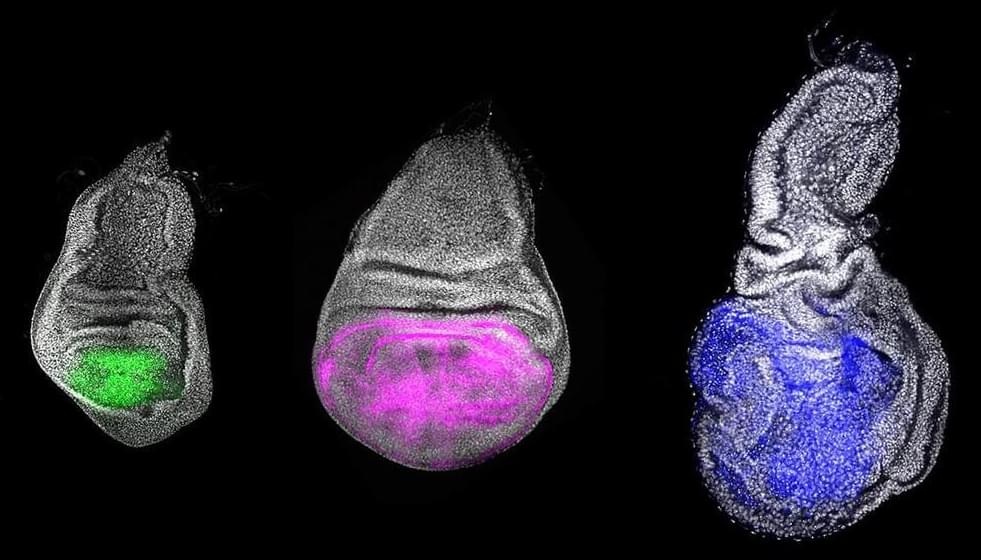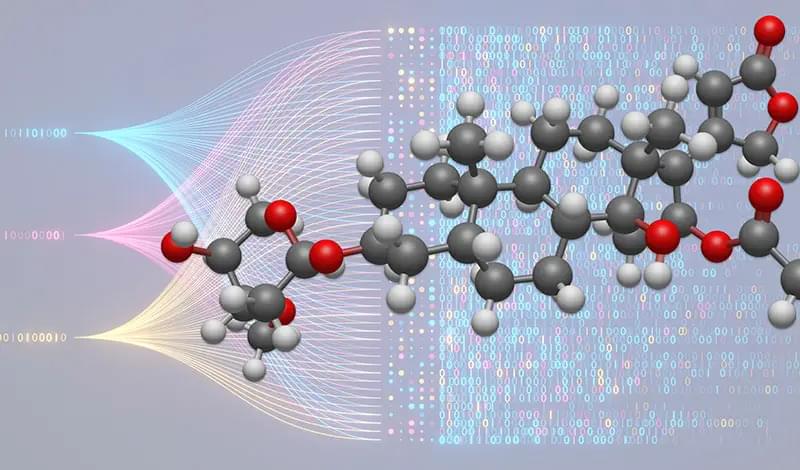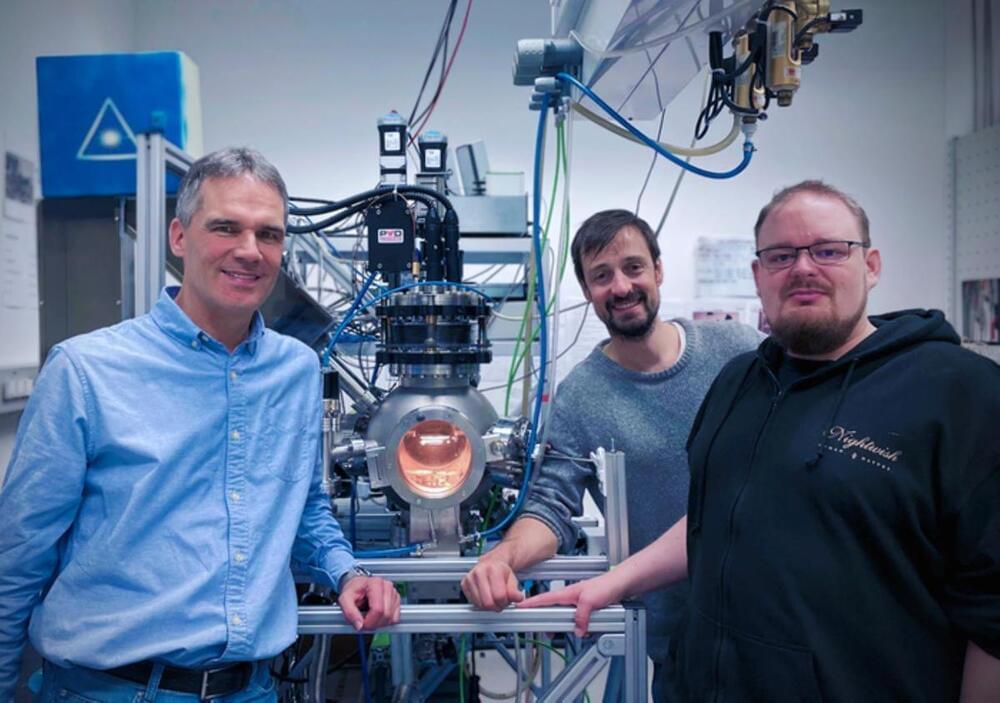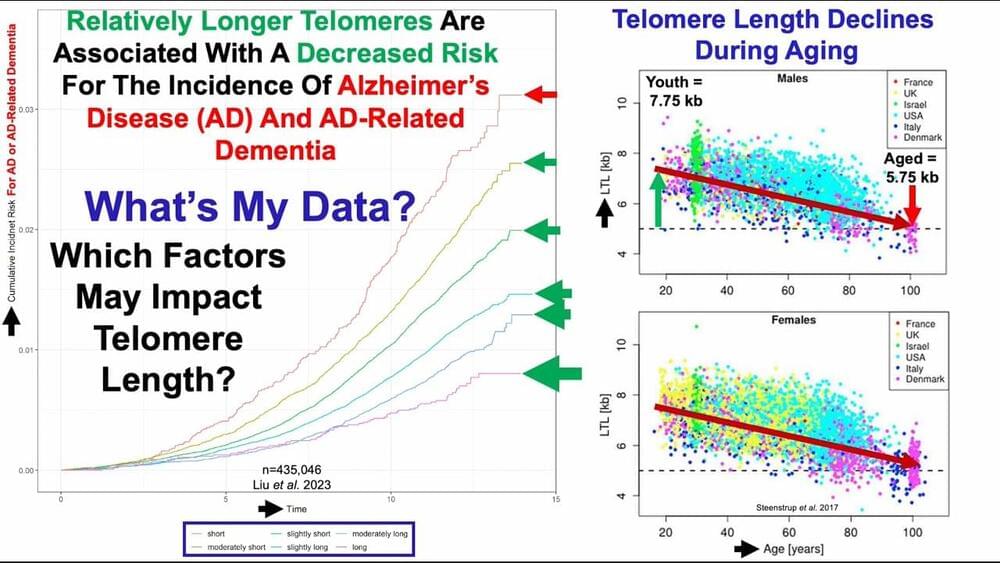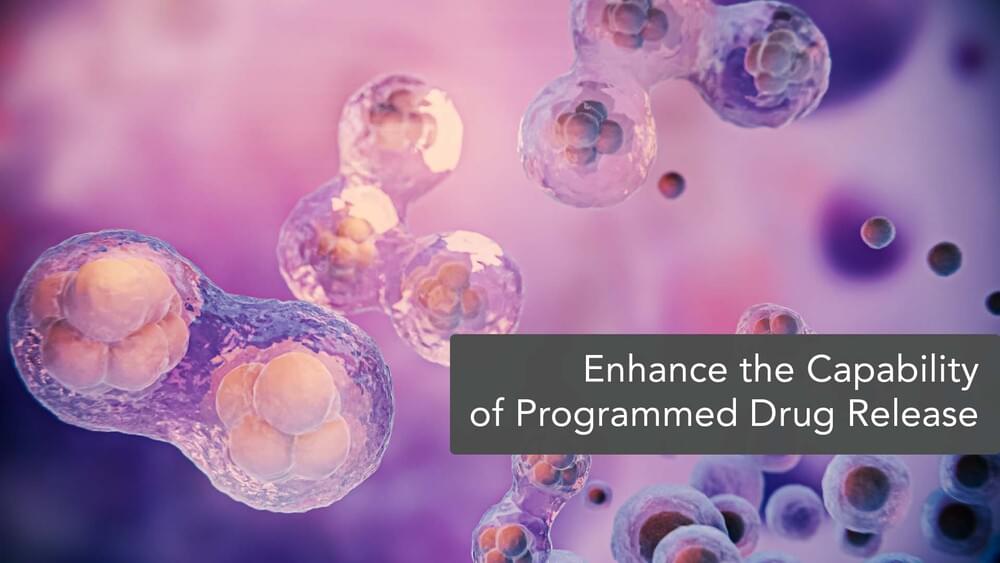Jun 21, 2023
The Loss of Y Chromosomes, a Natural Part of Aging, Drives Cancer
Posted by Shubham Ghosh Roy in categories: biotech/medical, genetics, life extension, sex
The Y chromosome is the smallest chromosome, and holds the least amount of genes, but scientists are still learning about all of its biological functions. Research has shown that many men start to lose Y chromosomes in blood cells as they get older, and this phenomenon has been linked to some disorders including heart disease and now, cancer. Some studies have suggested that the loss of the Y chromosome may help explain why men tend to die at slightly younger ages compared to women, or why there are sex differences in some types of cancer… Two new studies reported in Nature have explored the link between cancer and the loss of the Y chromosome.
One study used a mouse model to show that a specific gene on the Y chromosome known as KDM5D increases the chance that some types of colorectal cancer will metastasize. The other research report showed that when some cells lose the Y chromosome, bladder tumors are better at evading the immune system, and the risk of aggressive bladder cancer increases.



